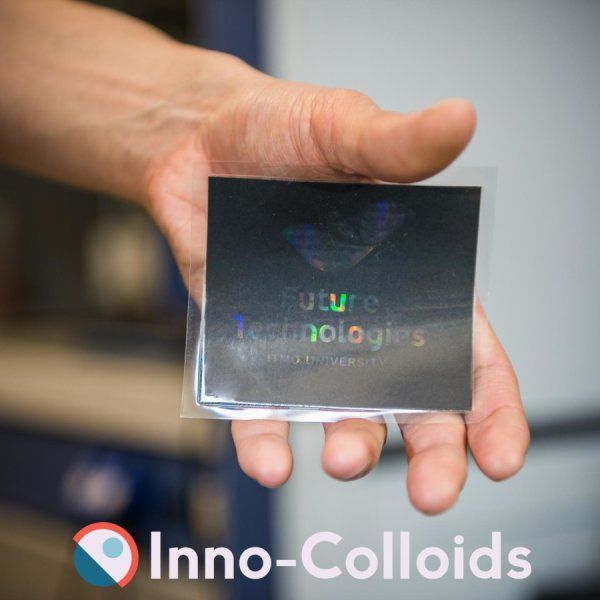Vivid holographic images and text can now be produced by means of an ordinary inkjet printer. This new method, developed by a team of scientists from ITMO University in Saint Petersburg, is expected to significantly reduce the cost and time needed to create the so-called rainbow holograms, commonly used for security purposes — to protect valuable items, such as credit cards and paper currency, from piracy and falsification. The results of the study were published 17 November in the scientific journal Advanced Functional Materials.
The team, led by Alexander Vinogradov, senior research associate at the International Laboratory of Solution Chemistry of Advanced Materials and Technologies (SCAMT) in ITMO University, developed colorless ink made of nanocrystalline titania, which can be loaded into an inkjet printer and then deposited on special microembossed paper, resulting in unique patterned images. The ink makes it possible to print custom holographic images on transparent film in a matter of minutes, instead of days as with the use of conventional methods.
Rainbow holograms are widely used to fight against the forgery of credit cards, money, documents and certain manufactured products that call for a high level of protection. Even though the technology of obtaining holographic images was already developed in the 1960s, there still exist numerous technical difficulties that impede its further spread and integration into polygraphic industry.
